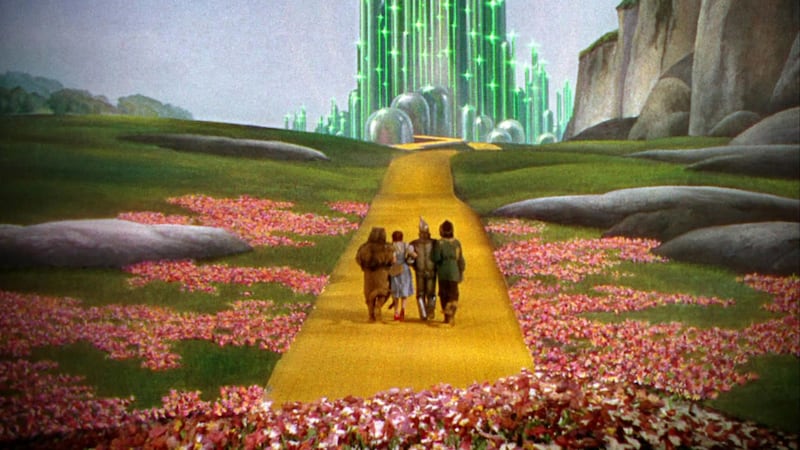The general election is less than two weeks away, yet to date the campaign has been lacklustre and dull. Why has it failed to spark into life?
On a national level the contest between Rishi Sunak and Keir Starmer has been as dull as dishwater. The two main contenders are hardly dynamic.
Sunak is snippy, thin-skinned, tetchy and petulant. His manner and tone during the TV debates has been far from endearing. His struggle to empathise with the public is almost painful to watch. A man singularly unsuited to the office he holds, he has spent his whole life in a gilded bubble, protected from reality.
- Dear Mike, here’s the three things you need to do to fix the health service - Deirdre HeenanOpens in new window
- We need our politicians rowing in the same direction but too many are paddling their own canoes - Deirdre HeenanOpens in new window
- We won’t be at the top of a Labour government’s agenda - Deirdre HeenanOpens in new window
Starmer, meanwhile, just can’t shake the ‘boring’ label. Labour’s dominance in the polls has not given him the freedom to go big and go bold.
The party have learned the hard way that a seemingly unassailable lead can be a hostage to fortune. They are still haunted by 1992 and 2015 when they were ahead in the polls and were still defeated. Sir Keir’s pitch is bringing stability and ending the Tory chaos.
Even in a one-sided campaign there is always uncertainty. England is essentially a Conservative country and occasionally a Labour government manages to slip through. The obsession with caution may be justified and understandable, but it is very difficult to engage with.
Perhaps Starmer is right, and the voters have had all of the ‘excitement’ that they can stomach with Cameron’s austerity, May’s ineptitude, Johnson’s immorality, Truss’s insanity and Sunak’s arrogance.
It is possible that we have become accustomed to high drama and excitement. However, there has to be a reason to vote for someone. Politics has been famously described as showbusiness for ugly people - a phrase that still implies that an element of entertainment is required.
Closer to home and we have a similar story. Despite the fact that in a number of cases the winning margins may be very small, the election has failed to energise the public.
Given the fact that after almost six months, there is still no sign of a programme for government at Stormont, no legislation, no major policy, no momentum, why would people be energised in the battle for Westminster seats?
Even Colonel Tim Collins’s unfiltered rants about his Rolls-Royce barely raised a smile. There is precious little tangible enthusiasm or excitement. For the DUP, this election is largely about consolidation and damage control - hardly a message that will galvanise their electoral base.
The need to significantly reduce apathy amongst the unionist base came to the fore again in last year’s council elections. Voter disengagement is the biggest hurdle that unionist parties face. The debacle over the Irish Sea border has significantly weakened trust in democratic politics.
Understandably, Gavin Robinson is desperately trying to distance himself from the controversial Donaldson deal. He now concedes that the deal was oversold but rather unconvincingly denies that he was one of its strongest advocates.
For Sinn Féin supporters abstentionism is an accepted party position. However, their messaging around this election is contradictory and confused. On the one hand they argue that they have influence in Westminster, while on the other they claim Westminster is irrelevant to the north.
There seems to be little ambition to increase their current seat tally with their posters erected weeks after their political opponents. Their election slogan ‘Strong leadership and positive change’ is somewhat ironic for a party in power for 17 years. Positioning yourself as being about change doesn’t exactly resonate when you are an established party of government.
Sinn Féin’s election results in the south raise serious questions about leadership, strategy and identity. Doubt has been cast over Mary Lou McDonald’s long-term status as taoiseach-in-waiting.
The party is all over the place in relation to immigration. They are opposed to open borders. But where? As they argue vociferously for an open border on the island of Ireland, attempts to negotiate a path through the hot topic of immigration have failed spectacularly.
The best that could be said about their manifesto is that it is bland and brief. It’s in no way a serious policy document. Five pages of complacent waffle with absolutely no detail on how they plan to deliver this ‘change’. “An opportunity to create an efficient all-island national health service.” Really? Based on the NHS, a social insurance model, a private insurance model, a hybrid... who knows?
Finally, an increasingly disengaged electorate may be partially explained by people failing to see the relevance of this contest to their day-to-day lives. There is a lack of clarity around what, if any, influence our 18 MPs can have in Westminster.
The big-ticket issues such as health, education, housing and infrastructure are fully devolved to Stormont. Given the fact that after almost six months, there is still no sign of a programme for government, no legislation, no major policy, no momentum, why would people be energised in the battle for Westminster seats?
This campaign has been dominated by rhetoric about growth, change and prosperity but precious little on how this might be achieved.










